Do I have to quarantine a person with AIDS in my family?
AIDS has always been a disease that we talk about, not only have we always thought of it as a cancer, but we have also defined it as the most horrible disease in the world in terms of long term contagion.
Since I've been doing this work, I've also gone from being a fledgling medical student who talks about HIV to seeing it.
1
At that time, although I had learned about AIDS from medical textbooks, I basically knew nothing about this particular disease other than the simple ways in which it was transmitted. I knew nothing about other things, such as the clinical manifestations of AIDS, how people with AIDS lived, and whether or not they would be quarantined.
Before I came to the CDC, I never knew what the CDC did, even the old revolutionaries who had been in the clinic for decades were confused, and anyway, that was the rumor - it was easier than being a doctor.
On the day of reporting, my new male colleague and I were called to the office by the division director and asked us both a question: "Which section do you want to go to? "My colleague and I paused and both said: listen to the leadership arrangements. After the conversation was over, we were taken to our respective positions by the leaders of each section.
When I came to this department, I realized that the job I was about to face had always been a struggle for only one person - it was called the AIDS Prevention Department. When I listened to the leader, I was so stupid that I thought it was the "Aids and Prevention Department", so I kept asking questions that were not like those asked by people who studied medicine, given my intelligence at that time.
"Will AIDS people come at us with knives? "
"Do people with AIDS all have sores all over their faces and festering skin? "
"Talking together will not say contagious? "
The head of the department answered me with aplomb, as if he knew I was going to ask him these non-technical questions.
2
The next day, the office came a patient suspected of HIV infection, but also took some hospital checklists to my teacher, I came close to see, in a certain hospital discharge diagnosis of the last clearly written: HIV-infected? I took a step back in fear and pretended to look for other things to keep away from the suspected AIDS patient.
After that patient left, I tiptoed over to the teacher: "That patient was so scary! ", and as I spoke, I could clearly hear the sound of my heart beating so strongly.
Since then, every day there will be some patients or patients' families to consult, I usually sit opposite the teacher, the patients are around the teacher, I am only responsible for running errands, watching how the teacher and the patient talk. The days of running errands and playing soy sauce always go by so fast, in the blink of an eye, 1 month has passed, I slowly become the office gatekeeper, but fortunately, when I am alone, there are few patients coming to the consultation, so I live a very pleasant life.
But the work of this matter, is a mule is a horse, always have to pull out to slip, otherwise how can get the trust of the leadership.
3
"Excuse me, young lady, is this where I was informed to get my report". It was the voice of a woman, around 40 years old.
"Uh, what's your name?" , My name is so-and-so, and then I find the report card.
He took the report card and asked again: is my disease serious?
I was stumped for a moment "What to do, what should I tell her, should I just give her the propagation method, or should I tell her about getting the pills, should I ask her if her husband has been screwing around or if she has been going out and screwing around?" .
However, the result was not like the protagonist in the TV series, who came down with a surprise and gained favorable comments from the patients." "This... You're infected with HIV, it can't be cured". The woman was silent for a moment "Trouble you little girl". When I heard this sentence, I froze for a moment, I only said this sentence for why also give me to say thank you, AIDS people will also say thank you, the heart of an indescribable feeling.
Since then, as I have more and more contact with patients, every time I hear a "thank you", "you are so kind", "please", I will treat them more sincerely, no matter it is from the transmission method, life precautions, medication and psychological comfort. I would treat them more sincerely, no matter it is from the way of communication, the precautions of life, or the situation of taking medicine and psychological comfort.
They are perhaps the group of people with the lowest self-esteem and need care. With more and more contact with the patients, we slowly realize that they are just like normal people, just like when they are not sick, you do not know that they are suffering from this disease. Sometimes the conversation with them is like a family affair, and if they are particularly good friends, they may talk for an hour.
On this occasion, I would like to make it clear that there are many patients suffering from AIDS are also victims, often unknowingly and accidentally infected, as for those rumors of retaliation against the community is also a very small number of people, I hope that you can look at them with an objective eye.
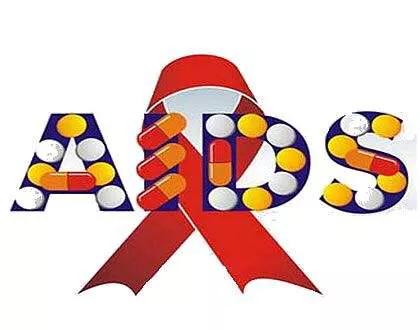
谢邀.
鉴于以上诸君的回答,兔叔在这里就不普及艾常识性知识了,就事论事,家里有一位艾滋病人,确实不是一件容易对付的事,日常生活是没有什么,但濭濭碰碰总是难免的,加之社会上左邻右舍的飞短流长,面临的压力可以想到。
On the current level of medical care, Ai is no way to cure, but can be drug control and recuperation, proper medication, good quality of their own, tenacious vitality can be done with ordinary people with life.
The main means of transmission are blood, mother and child, and sex. It is highly controllable, but once the disease breaks out, the situation is very difficult, and the situation is extremely fearful.
Therefore, Uncle Rabbit suggests that, from the perspective of caring for patients, it is more appropriate to give them a quiet environment and a separate space if conditions permit.
Strong answer to a wave!
In the course of my work, I also often encounter patients' families come to consult what they need to pay attention to in their lives, so I will talk about what to pay attention to next!
In response to the question of the subject, we need to distinguish between cases, if the patient is in the early stage does not need to be isolated, but is in the advanced stage of AIDS malignant patients, which requires strict isolation.
Then we focus on what to expect from early stage AIDS patients.
First, as a family member, you should have to urge the patient to take medication at regular intervals and build up a good self-confidence, because this disease can now be functionally cured.
Second, general contact does not spread, so in life, except for not sharing toothbrushes and razors and other damaging equipment, can be shared (such as toilets, dishes, etc.).
Thirdly, condoms must be used throughout, correctly and every time during the couple's sexual behavior.
So there is no need for us to treat AIDS patients with so much fear, and the transmission capacity of AIDS disease is really not high. I hope my answer is helpful to you.
I'm an AIDS professional, so leave a comment if you have questions!
AIDS is an infectious disease in which people infected with the human immunodeficiency virus HIV and people living with AIDS are the source of infection. HIV has been isolated from blood, semen, vaginal secretions, tears, breast milk, saliva, and sweat, but tears, saliva, and sweat contain very low levels of the virus and do not cause infection.
It is important to live with someone who has AIDS, to be aware of the means of transmission, to actively protect yourself from infection, and to get tested for AIDS if you suspect that a possible infection is occurring, but there is no recommendation for regular or mandatory testing.
The answer is a resounding no. There are three routes of HIV transmission, which are well known: blood, sex, and mother-to-child. At present, most of the people infected with AIDS in China are sexually transmitted, and the trend is getting younger. Blood transmission generally includes blood transfusions (extremely low probability, similar to winning the lottery), drug use and sharing needles. Sexual transmission, mainly male-to-male transmission, the chances of being infected than the attack. Because the mucous membrane of the human rectum is relatively fragile, it is easy to exchange body fluids. Among heterosexuals, the chances of infection are greater for women, followed by men. It should be noted that even without any protection measures under the heterosexual XJ, as long as not enough intense, time is not particularly particularly long, the chance of infection is also not big, heterosexual sex without a condom sexually transmitted chance of roughly 1/200 or so. Mother-to-child transmission can now be basically solved by sperm washing or artificial blockage, with a success rate of more than 90%. An important condition for the transmission of AIDS is, to put it mildly, the need for confined spaces and adequate exchange of bodily fluids (National Center for Disease Control and Prevention, U.S.A.). Human blood, semen in high levels, saliva, tears in almost no HIV, you live with nothing to do blood exchange? So there is no need for isolation in your life. Some more advice to some people nowadays, always use condoms to protect yourself and your partner. Secondly, AIDS is not scary, now it has become a chronic disease, according to the requirements of the medication, maintain good habits, timely detection of viral load, cooperate with doctors and active treatment, can be no different from normal people. Above.
Thanks for the invitation. It depends. Oh, basically, you don't need to quarantine.
HIV patients already on antiretroviral therapy:
When a patient has been on antiviral treatment for more than six months, the vast majority of viral loads are below 50 and infectiousness tends to be 0. Except for the need to pay attention during sex and bleeding as well as daily monitoring of his medication on time, there is no need for you to treat him as a patient, so please feel free to interact and communicate with them.
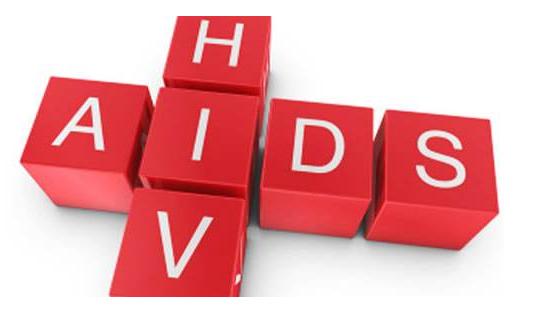
Patients who have not been treated or have been treated for less than six months, or who are caring for someone with AIDS:
1. Wash your hands carefully with soap
Hand washing should be done regularly, especially after contact with body fluids or areas contaminated by body fluids of an infected or sick person. This is one of the easiest and most effective protective measures for most caregivers.

2. About wearing rubber gloves
Note that if the skin is inadvertently injured, or if the skin is not intact, such as if it is inflamed or if there is eczema, wear rubber gloves when handling the patient's secretions and wounds.

We know that HIV transmission is blood-borne. When you care for someone with HIV and accidentally break your skin and bleed, it is best to wear rubber gloves to protect yourself as well as the patient.
3. Maintaining skin integrity in care and daily life
It is not necessary to wear gloves in most situations, such as feeding the patient, helping the patient to walk around, or washing the patient's laundry and bathing the patient when the patient's skin is undamaged, etc., and take care to keep your own skin intact in your care.
4. Disapprove of taking care of patients who are able to take care of themselves.
Some families take excessive care of patients who can live on their own because of compassion for them and fear of HIV transmission, which is not necessary! (Parents of infected children are especially reminded of this).
We encourage patients who are living on their own to do what they can, not only to make them feel valued and empowered, but also to enhance their relationship and affection with their loved ones. It is just a matter of taking care not to injure themselves in their daily lives, paying attention to hygiene during menstrual periods and the sterilization of blood contaminants.
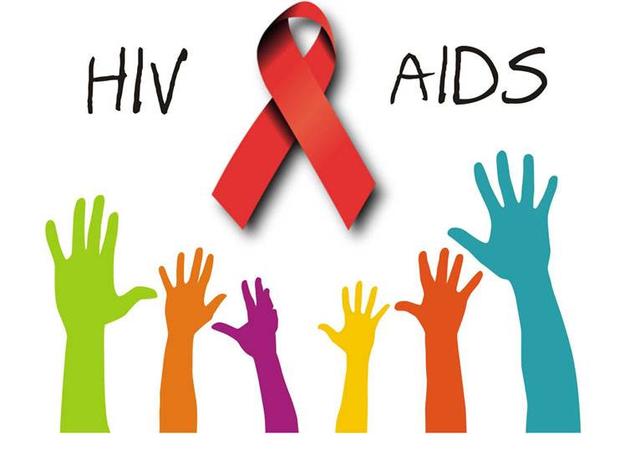
5. Sterilization of articles contaminated with patient secretions and blood
Soak in a 0.1% bleach solution for 30 minutes and then wash in the usual way; boiling to sterilize can also be applied in home care because HIV is extremely sensitive to heat in vitro.
One last and very important point, when you're caring for someone with AIDS.Make sure you're in good health yourself.。
Because HIV-infected and AIDS patients are immunocompromised, they can often develop a variety of diseases that normal people do not suffer from.
When caring for them, try to do so when available:
When you have a cold or upper respiratory infection yourself, wear a mask to do daily care tasks, or arrange for the patient to stay in another room if possible to avoid the patient being infected; open windows regularly in the home to keep the air fresh, and keep the floor clean and dry and the room warm.

Of course, caring for AIDS patients is a long-lasting battle. Opening our arms to them and giving them confidence and hope is the sure-fire way to beat the disease!
(Part of the graphic content from the network, the copyright belongs to the original author, if any violation, infringement, please contact me)
No need, just be careful that there is no contact of blood or body fluids. Usually eating and cuddling is fine.
There is no need for isolation, normal life, such as eating together, shaking hands, hugging, kissing, etc. will not infect AIDS, AIDS patients have eaten the dishes, soup, slept in the bed, etc., is not infected with HIV, HIV is very fragile, in the human body, if directly exposed to the air, not a few minutes will die, AIDS is very scary, but the virus is not very strong, it will not spread through our daily activities, that is to say, we will not go through kissing, shaking hands, hugging, sharing meals, sharing office supplies, sharing toilets, swimming pools, sharing telephones, sneezing, etc. Not very strong, it will not spread through our daily activities, that is to say, we will not go through kissing, shaking hands, hugging, sharing meals, sharing office supplies, sharing toilets, swimming pools, sharing telephones, sneezing, etc., and infected with AIDS, the normal care of HIV-infected or AIDS patients are not related to the need to worry about must be too much, but except for the sexual contact, because the transmission of AIDS is mainly through the sexual, blood and There are three main ways of transmission of AIDS: sexual, blood and mother-to-child. The AIDS virus is in the blood of the person with AIDS, so family members will not be infected if they do not touch his blood. No blood exposure in daily life, such as eating, talking, washing clothes together, etc., will not transmit HIV. Family members can test themselves for HIV antibodies through saliva or blood tests, such as those available on the Internet or in pharmacies.
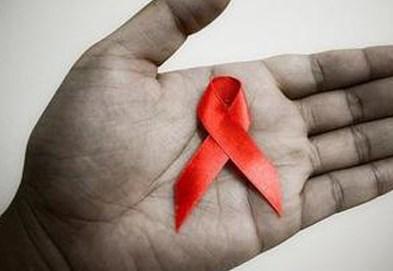 AIDS is generally transmitted through blood, body fluids, sex, mother-to-child transmission, the chance of transmission itself is very low, generally do not need to isolate, personal supplies used separately to store can be, avoid blood sexual contact can be.
AIDS is generally transmitted through blood, body fluids, sex, mother-to-child transmission, the chance of transmission itself is very low, generally do not need to isolate, personal supplies used separately to store can be, avoid blood sexual contact can be.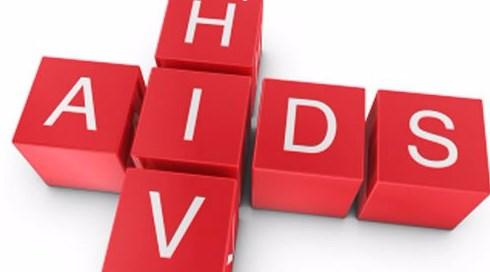
Family with AIDS will only be notified by the local Center for Disease Control and Prevention I know, and then the patient will be followed up, mainly for the viral load and CD4 cell monitoring, AIDS patients in a long period of time during the incubation period is no symptoms, can live and work as normal, as long as attention to pay attention to a little bit in the sex life. At this stage, no other department will intervene, and what the patients have to do is to cheer up their confidence and actively cooperate with the follow-up visits of the CDC staff.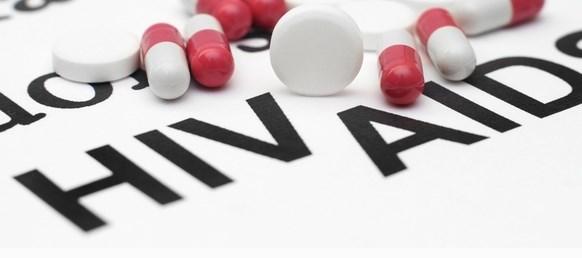
There is no need to isolate a person with AIDS in the family, because AIDS requires a certain way to spread, and after antiretroviral treatment, the viral load in the patient's body is controlled at a certain level, and daily contact, shaking hands, hugging, and eating will not be infected.

However, AIDS is always a disease that can not be cured for the time being, people are silent when discussing AIDS, even if the family will not have any discrimination, but as a patient is not willing to family members thus love to infection. So if there is a person with AIDS in the family, you also need to pay attention to these aspects.
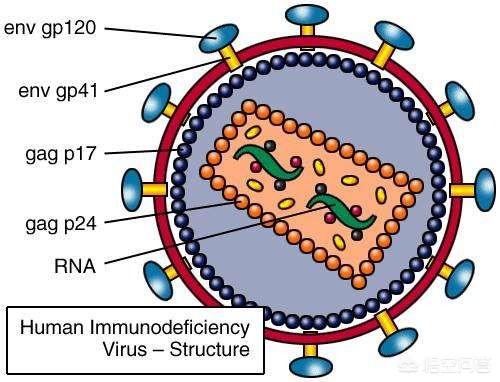
1. Give patients great support and understanding, more care, and encourage them to actively carry out antiviral treatment.
2. Avoid sharing personal items such as toothbrushes and razors with patients.
3. Sexual life between husband and wife should be well protected, wearing condoms to prevent infection of the spouse.
4. Actively exercise, enhance their own immunity, avoid heavy physical labor, stay up late.
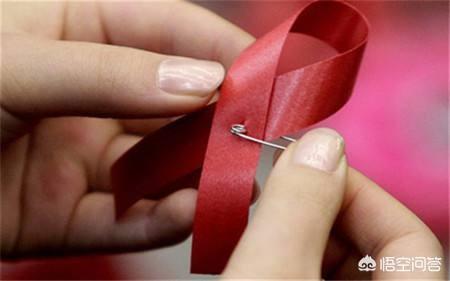
Although AIDS cannot be cured, it can be treated with antiviral therapy, which reduces the amount of virus and minimizes its replication in the body. The life expectancy of a treated patient is not very different from that of a healthy person. Therefore, family members of AIDS patients should support the patients so that they can avoid loneliness. AIDS patients themselves should also overcome the heart obstacles, eliminate the barrier, actively communicate with their families, and face everything with an optimistic and positive mindset!
AIDS patients themselves should also overcome the heart obstacles, eliminate the barrier, actively communicate with their families, and face everything with an optimistic and positive mindset!
To learn more about health, welcome off the Comic Relief Public Health!
This question and answer are from the site users, does not represent the position of the site, such as infringement, please contact the administrator to delete.